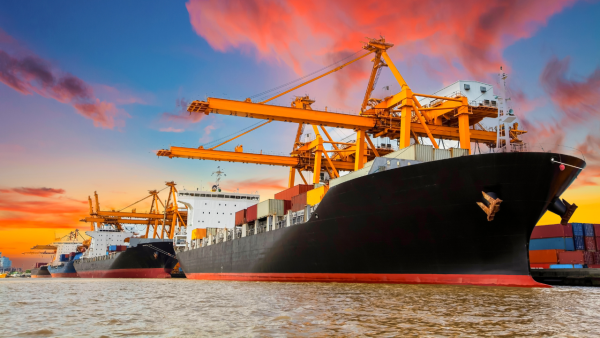

In an era where the rapid pace of technological advancement continuously reshapes industries, Artificial Intelligence (AI) has emerged as a pivotal force in revolutionizing Supply Chain Management (SCM). The integration of AI in supply chain operations is not merely a trend but a substantial shift towards data-driven decision-making and predictive analytics, leading to unprecedented levels of efficiency and profitability. This article will dissect the role of AI in Supply Chain Management, providing insights into how businesses are leveraging AI to streamline their logistics, reduce costs, and stay ahead in a competitive marketplace.
AI technology is a game-changer in the realm of Supply Chain Management. It equips businesses with the tools to analyze vast amounts of data, predict trends, and automate complex processes. Below are six key themes illustrating the transformative power of AI in SCM:
AI algorithms excel at processing large datasets to forecast demand with higher accuracy. By analyzing historical sales data, market trends, and consumer behavior, AI helps companies anticipate demand fluctuations, thereby optimizing inventory levels and reducing waste.
Through machine learning, AI systems can predict optimal stock levels, automate reordering processes, and identify the best suppliers. This results in reduced carrying costs and minimizes the risk of stockouts or overstocking.
AI-powered tools analyze traffic patterns, weather conditions, and delivery schedules to suggest the most efficient routes. This optimization leads to faster delivery times, lower fuel consumption, and reduced carbon footprint.
The use of AI-driven autonomous vehicles and drones is reshaping last-mile delivery. These technologies promise to enhance delivery speed, reduce human error, and lower operational costs.
AI systems can evaluate suppliers based on various criteria such as reliability, cost, quality, and compliance. This helps businesses choose the best partners and fosters a more resilient supply chain.
AI enables real-time tracking of goods and assets across the supply chain. It can also predict and mitigate risks by monitoring global events, such as natural disasters or political unrest, that may impact supply chain operations.
Identify patterns and factors in supply chain data providing warehouse managers the capacity to make data-driven decisions about inventory stocking. Predictive analysis provides deep levels of insights and forecasting loop.
Using AI predict demand and optimise the flow of critical parts to keep production moving smoothly. Analyse possible constraints and optimise for them especially for custom and build-to-order production. AI also helps business reduce supply latency for parts utilised in highly customised or most popular products.
SCM requires detail-oriented analysis including techniques in loading and unloading goods to determine the most efficient and fastest means to get goods on and off delivery vehicles – aircraft, ships, and trucks.
AI-optimised routes and GPS tools provide logistics companies the most efficient routes the ensure timely deliveries to customers and clients.
IoT devices data and in-transit supply chain vehicles information provide data on the health and longevity of expensive equipment and transport vehicles used in moving goods and supplies. Machine learning makes failure predictions and establish maintenance recommendation to keep the vehicles in tip top shape.
Efficient and well-organized inventory management is the foundation of a supply chain. AI help minimise manual input, create accurate forecasts, analyse and interpret real-time data thus providing accurate inventory.
Moving goods is becoming increasingly expensive. Bloomberg reported that in 2020 shipping increased by 12%. AI help organisations negotiate better shipping and procurement rates, pinpoint better delivery options for higher profit, and improve carrier contracts.
Personalised customer experience is driving the differentiation for delivery companies. Apart from traditional parcel tracking, there are voice-based service shipment tracking as well as pro-active customer service assistance should there be delays and issues.
The integration of AI in Supply Chain Management is an evolutionary step that is redefining the industry’s future. By embracing AI, companies can unlock a wealth of opportunities to improve their operations, enhance customer satisfaction, and bolster their bottom line. As AI continues to evolve, its potential to transform supply chain ecosystems becomes increasingly vast, promising a smarter, more responsive, and more efficient future for businesses worldwide.
Send us an email with the details of your enquiry including any attachments and we’ll contact you within 24 hours.

Call us if you have an immediate requirement and you’d like to chat to someone about your project needs or strategy.

We would be delighted to meet for a coffee, beer or a meal and discuss your requirements with you and your team.
